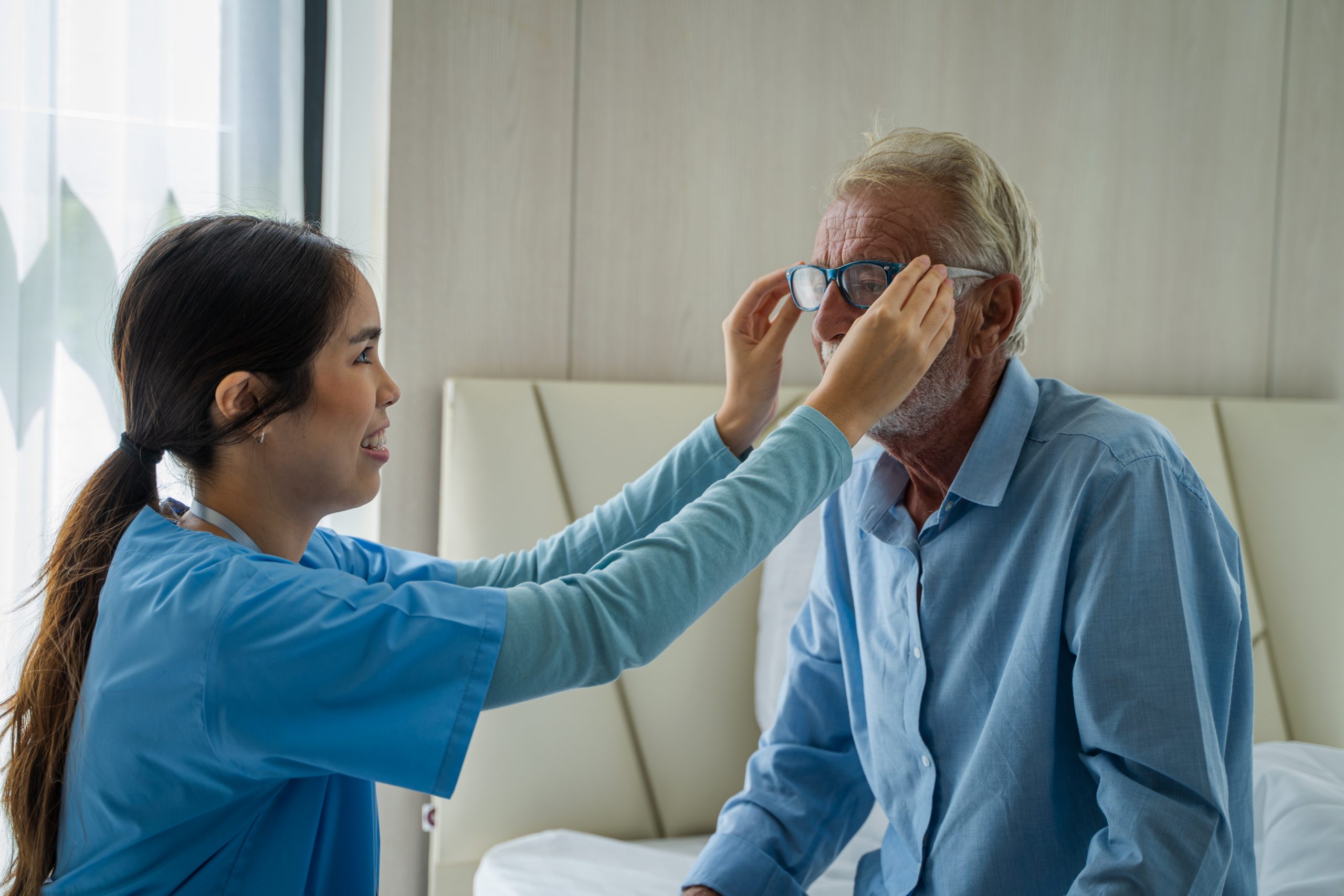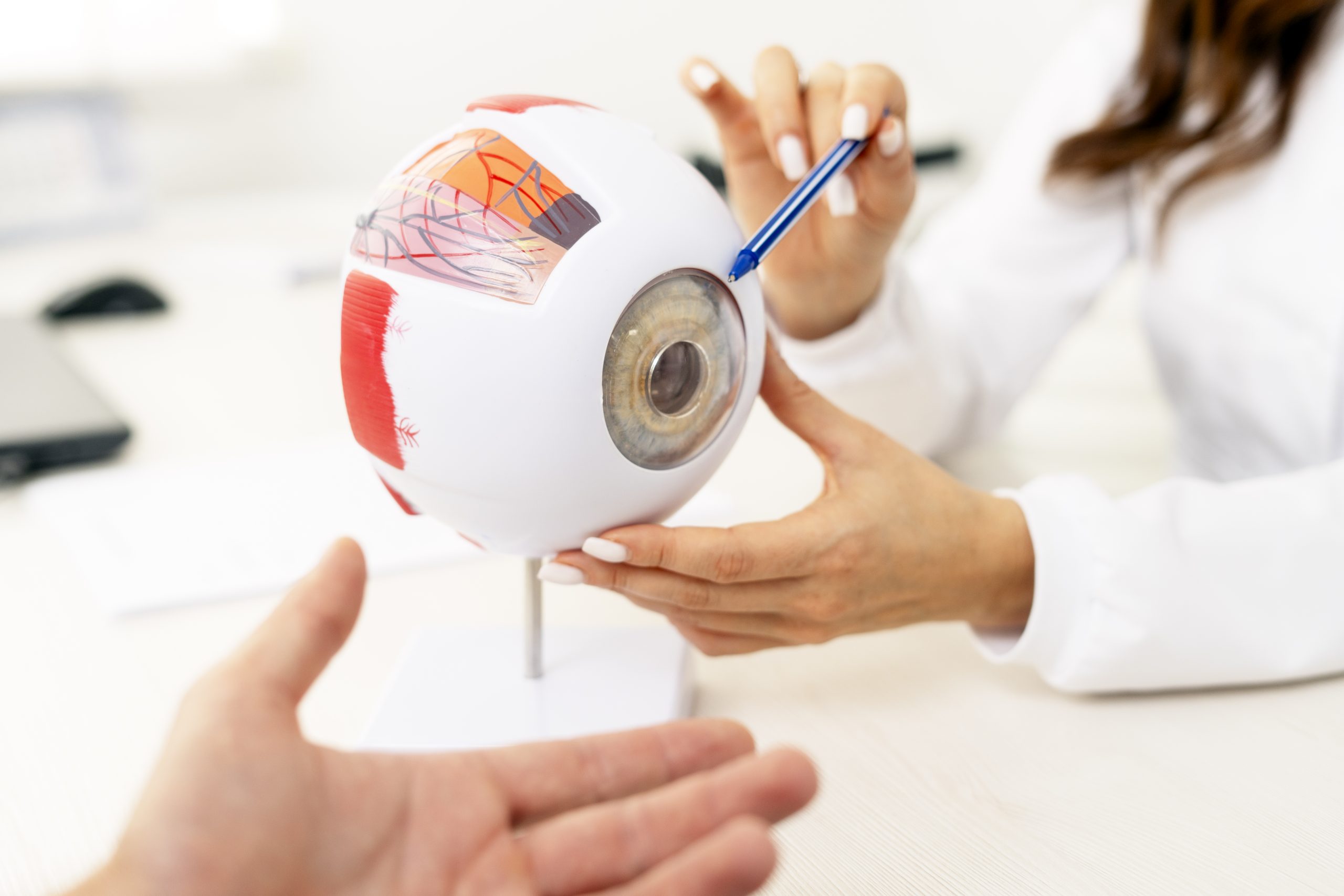Macular degeneration is among the major 5 causes of vision loss in aging people, and it affects the macula, the small central part of the retina that involves very detailed and sharp vision. If not treated in time, the condition may progress to a stage where patients are barely able to read, recognize faces, or even drive. Using modern medicine, it has become possible to find effective treatments that not only slow down the development of the disease but also improve the patient’s vision. The choice is now more in favor of personalized care, which combines with the latest scenarios and tech-based solutions to meet the needs of patient safety and efficiency.
Dr Natasha Lim, a specialized eye clinic in Singapore, is one of the specialists giving you the most up-to-date, evidence-based, and technologically advanced approaches through which clinical and research works are combined to provide you with tailored care that ensures your safety and effectiveness are at the forefront.
Understanding Macular Degeneration

Age-related macular degeneration (AMD) is the most common form of the disease and is characterized by the division of the illness into dry AMD and wet AMD. The first one comes with the reduction of the central area of the retina and progresses slowly, while the second one moves faster and is due to the formation of new blood vessels that leak. Any one of these can make vision in the central field become blurry, distorted, or even lost; thus, the individual’s daily life and activities will be seriously affected. Patients undergoing eye care treatments such as implantable collamer lens or implantable contact lens procedures should also ensure their macula health is monitored regularly to prevent complications or early signs of degeneration.
Doctors in Singapore’s ophthalmology clinics usually rely on various advanced diagnostic methods such as optical coherence tomography (OCT) and fluorescein angiography, which assist in early detection and thorough condition evaluation. These procedures help in taking the necessary shots, which are high in resolution, and thereby aid the physician in identifying the most suitable macular degeneration treatment for Singapore patients that would contribute to better results.
Common Causes and Risk Factors
The condition is mostly caused by age, but in addition to that, hereditary factors, smoking, obesity, high blood pressure, and exposure to the sun for a very long time are also mentioned in the list. Patients with a family history of macular degeneration are encouraged to have regular eye tests as a precaution to spot the problem at an initial stage. Taking preventive measures like changes in lifestyle and going for checkups regularly will still be the hardest weapon to fight against long-term risks.
Types of Macular Degeneration Treatments

It is possible to conclude that Singapore is a center of excellence in the field of ophthalmology, and it also offers a variety of the most efficacious treatments for the whole world. The clinics provide several procedures that aim to stop the development, alleviate the swelling, and help maintain the central vision. The therapy chosen is highly dependent on whether the patient is diagnosed with dry or wet AMD, and also on the degree of the disorder.
| Treatment | How It Works | Key Benefit | Recommended For |
|---|---|---|---|
| Anti-VEGF Injections | The blocking of abnormal blood vessel growth is the main function of this treatment. | Lowers swelling and stabilizes vision. | Patients with Wet AMD |
| Laser Therapy | The vessels that are leaking are sealed with the laser. | Halts disease progression. | Cases of Wet AMD |
| Photodynamic Therapy | A light-sensitive drug is used for this treatment. | Limits retinal damage. | Wet AMD, often combined with other treatments |
| Nutritional Supplements | Use of antioxidants, vitamins, zinc, copper, lutein, and zeaxanthin. | Slows disease progression. | Patients with Dry AMD |
1. Anti-VEGF Injections
Injections targeting the activity of Anti-VEGF are still the main treatment tool used in the therapy of wet macular degeneration. Resulting from the prevention of abnormal blood vessel growth carried out by these injections, less leakage and swelling in the macula appear. Patients, as a rule, need to repeat the treatment several times, and there is a quite significant improvement of visual sharpness and stability in most cases.
2. Laser Therapy
Laser photocoagulation is one of the methods that can be applied in the therapy of certain cases of wet AMD. Ophthalmologists use accurate laser energy to close vessels that are leaking, and there is no further leakage of the fluid. Despite the fact that this treatment method may not fully restore the vision lost, it is an important tool that helps stop the progression of the disease.
3. Photodynamic Therapy (PDT)
In this case, a light-sensitive drug is administered to the blood circulation, then a laser is used to activate this drug in the retina. The drug binds to newly formed blood vessels, thus lessening the damage to the nearby areas. PDT is usually complemented with other treatment modalities for better results.
4. Nutritional Supplements
In dry AMD, the role of managing one’s lifestyle and taking supplements is quite significant. It is recommended that the progress of the disease be slowed down with supplements that contain antioxidants, vitamins C and E, zinc, copper, lutein, and zeaxanthin. Though these supplements are not a cure, they are still very important parts of an all-around treatment.
The Role of Technology in Singapore’s Eye Care
High technology-based eye care of the present day in Singapore is all about accuracy and patient comfort. The different clinics avail the use of an advanced imaging system to detect the disease at an early stage, they also employ minimally invasive surgical techniques and use innovative drug delivery methods, which make the treatment more comfortable. Telemedicine, which is becoming more popular, gives patients the chance to have a doctor’s consultation in another place, get instructions, and schedule visits without any problem. In addition, clinics specializing in implantable collamer lens and implantable contact lens procedures utilize similar high-precision technologies, ensuring patients receive the safest and most effective care, whether for refractive correction or macular degeneration management.
Lifestyle Adjustments and Ongoing Monitoring

In the long run, treatment by itself is not sufficient. Patients can greatly benefit from lifestyle changes that synergize with the doctor’s care. The consumption of water that is full of great nutrients, quitting smoking, eating foods rich in leafy greens and omega-3 fatty acids, using sunglasses, and managing one’s blood pressure not only enhances the overall health of our body but also supports eye health.
Why Choose Macular Degeneration Treatment in Singapore?
One of the reasons why Singapore is known as the place to go to undergo prompt, precise, and successful treatment with highly specialized doctors and in eye care centers that have high degrees of clinical excellence and patient-centered care, is the worldwide-known educated healthcare professionals who combine the available global practices with the most advanced cutting-edge technologies for the greatest macular degeneration treatment in Singapore. Besides healthcare procedures, patient education is also one of the points that clinics pay attention to, and so, by becoming aware of what takes place in their body and by being involved in the management of their condition, they will have a say in this matter.
Key Takeaways on Macular Degeneration Treatments
- Anti-VEGF injections are the main treatment for Wet AMD to lessen both the swelling and the growth of vessels.
- Laser therapy and photodynamic therapy (PDT) play a role in halting the progression of the disease.
- Dry AMD patients are recommended to use nutritional supplements to help manage the condition.
- Following a medically sound lifestyle enhances the effectiveness of treatments.
- Telemedicine and advanced diagnostic tools allow early detection and convenient management of the condition.
- Singapore is home to well-trained eye surgeons and specialists who provide personalized and effective macular degeneration care.
Conclusion
Macular degeneration is still a dangerous disease; however, with the organization of the right treatment and medical aid, vision can be saved, and the quality of life can be improved. It is very important to select the right treatment for macular degeneration as it has a direct impact on the long-term outcomes. In Singapore, there is a huge range of therapies that are very effective, such as the anti-VEGF injections, laser procedures, along nutritional and lifestyle management. With specialists like Dr Natasha Lim, patients become a part of a safe and competent team where clinical accuracy meets patient-centric care. Patients can protect their sight and enjoy a clearer and more vibrant vision for many years to come by getting an early diagnosis, being diligent with their follow-ups, and adopting healthy habits.
 Tasselline | Latest Articles By Singaporeans, for Singaporeans Article Site for Singaporeans
Tasselline | Latest Articles By Singaporeans, for Singaporeans Article Site for Singaporeans